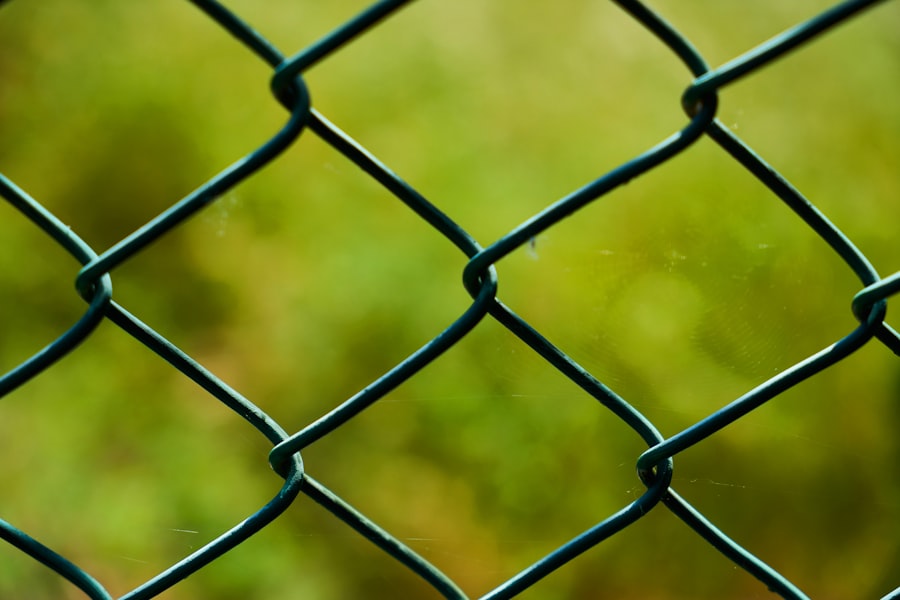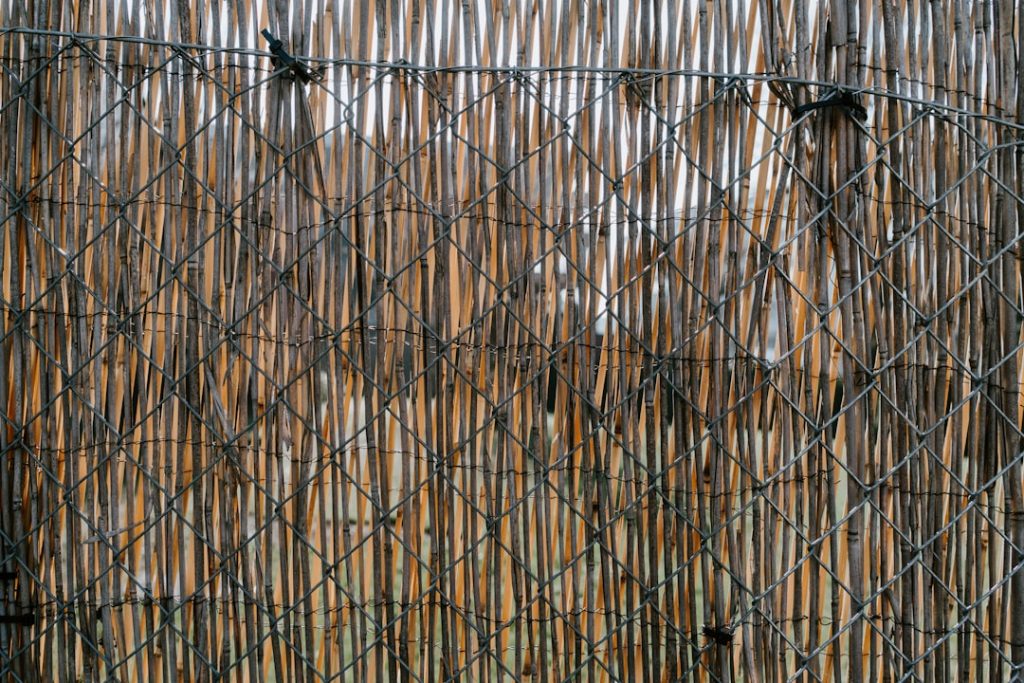Chickens are naturally curious and social animals with a strong instinct to forage for food. They are easily startled and can be skittish around unfamiliar objects or noises. Understanding these behaviors is crucial for managing their movements in specific areas.
Chickens are territorial and will defend their space from perceived threats, which can lead to aggression towards other animals or humans. They are creatures of habit, often returning to the same foraging areas daily, making it challenging to deter them without proper strategies. Chickens have a natural instinct to scratch and peck at the ground in search of food, which can damage gardens, lawns, and landscaping if left unchecked.
Understanding this behavior is essential for implementing effective deterrents and management strategies. By comprehending the natural behaviors of chickens, one can better anticipate their movements and implement strategies to deter them from unwanted areas while still allowing them to exhibit their natural behaviors in a controlled environment.
Table of Contents
- 1 Creating Physical Barriers
- 2 Using Natural Deterrents
- 3 Implementing Repellents
- 4 Providing Alternative Areas for Foraging
- 5 Training and Supervising Chickens
- 6 Seeking Professional Help if Needed
- 7 FAQs
- 7.1 What are some effective ways to keep chickens out of flower beds?
- 7.2 Why do chickens like to go into flower beds?
- 7.3 Are there any plants that can deter chickens from entering flower beds?
- 7.4 Is it safe to use chemical deterrents to keep chickens out of flower beds?
- 7.5 How can I train my chickens to stay out of flower beds?
Key Takeaways
- Chickens are naturally curious and will explore their surroundings, so understanding their behavior is key to preventing them from entering unwanted areas.
- Physical barriers such as fences and netting can effectively keep chickens out of specific areas, such as gardens or flower beds.
- Natural deterrents like citrus peels, coffee grounds, or predator urine can be used to discourage chickens from entering certain areas.
- Repellents such as commercial sprays or homemade mixtures using ingredients like garlic and chili can be effective in keeping chickens away from specific locations.
- Providing alternative areas for foraging, such as designated feeding areas with scratch or treats, can help redirect chickens’ attention away from unwanted areas.
- Training chickens to respond to commands and supervising their behavior can help prevent them from entering restricted areas.
- If all else fails, seeking professional help from a veterinarian or animal behaviorist can provide additional strategies for managing chicken behavior.
Creating Physical Barriers
Fencing and Barriers
One effective way to deter chickens from specific areas is by creating physical barriers that prevent them from accessing those areas. This can include installing fencing around gardens, flower beds, or other sensitive areas to keep chickens out. The fencing should be tall enough to prevent the chickens from flying or jumping over it, and it should be buried into the ground to prevent them from digging underneath it.
Protecting Plants and Landscaping
Additionally, using chicken wire or mesh netting can help protect plants and landscaping from being damaged by scratching and pecking.
Scare Devices
Another physical barrier that can be effective in deterring chickens is the use of scare devices such as motion-activated sprinklers or noise makers. These devices startle the chickens when they approach the protected area, causing them to retreat and avoid the area in the future.
By creating physical barriers, you can effectively deter chickens from accessing specific areas while still allowing them to roam freely in other parts of the property.
Using Natural Deterrents

In addition to physical barriers, natural deterrents can also be effective in deterring chickens from specific areas. One natural deterrent is the use of predator decoys such as fake owls or hawks. These decoys mimic natural predators of chickens and can help deter them from entering certain areas.
Additionally, planting certain types of vegetation that chickens find unappealing can also help deter them from specific areas. For example, planting prickly or thorny plants around sensitive areas can discourage chickens from entering those spaces. Another natural deterrent is the use of scent-based repellents such as citrus peels or vinegar.
Chickens have a strong sense of smell, and certain scents can be off-putting to them. By strategically placing these natural deterrents around sensitive areas, you can effectively deter chickens from accessing those spaces without causing them harm.
Implementing Repellents
In addition to natural deterrents, there are also commercial repellents available that can effectively deter chickens from specific areas. These repellents often contain ingredients that are unappealing or irritating to chickens, such as bittering agents or capsaicin. These repellents can be sprayed or applied to surfaces around sensitive areas to discourage chickens from entering those spaces.
Another type of repellent that can be effective in deterring chickens is the use of visual deterrents such as reflective tape or shiny objects. Chickens are easily startled by sudden movements or bright lights, so using visual deterrents can help deter them from specific areas without causing them harm.
Providing Alternative Areas for Foraging
One effective way to manage chicken behavior and deter them from specific areas is by providing alternative areas for foraging and exploration. By designating specific areas of the property for chickens to roam freely and forage for food, you can help redirect their natural behaviors away from sensitive areas. This can include creating designated foraging areas with loose soil or mulch where chickens can scratch and peck without causing damage to gardens or landscaping.
Additionally, providing alternative sources of food and enrichment can help keep chickens occupied and less likely to seek out sensitive areas for foraging. This can include providing access to a variety of vegetation, insects, and other natural food sources that chickens enjoy. By providing alternative areas for foraging and enrichment, you can help manage chicken behavior and deter them from accessing specific areas without restricting their natural behaviors.
Training and Supervising Chickens

Training Chickens with Positive Reinforcement
Chickens are intelligent animals that can be trained to respond to certain cues and commands. By using positive reinforcement training methods, you can teach chickens to avoid specific areas or to return to designated foraging areas on command.
The Importance of Supervision
Supervision is also crucial when it comes to managing chicken behavior. By regularly monitoring their movements and behaviors, you can intervene if they start to approach sensitive areas and redirect them to alternative foraging areas.
Consistent Training and Supervision for Effective Behavior Management
By providing consistent training and supervision, you can effectively manage chicken behavior and deter them from accessing specific areas without resorting to harsh or harmful methods. This approach not only promotes a safe and healthy environment for your chickens but also helps to maintain a well-organized and productive farm or backyard.
Seeking Professional Help if Needed
If you are struggling to manage chicken behavior and deter them from specific areas on your property, it may be beneficial to seek professional help. There are professionals who specialize in animal behavior and management, including chickens, who can provide expert guidance and assistance. They can assess your property and the behavior of your chickens and provide tailored recommendations for managing their movements and behaviors.
Additionally, seeking professional help can also provide access to specialized tools and techniques for deterring chickens from specific areas without causing them harm. By working with professionals who understand chicken behavior and management, you can develop effective strategies for deterring chickens from sensitive areas while still allowing them to exhibit their natural behaviors in a controlled environment. In conclusion, understanding the behavior of chickens is crucial when it comes to managing their movements and behaviors on your property.
By creating physical barriers, using natural deterrents, implementing repellents, providing alternative areas for foraging, training and supervising chickens, and seeking professional help if needed, you can effectively deter chickens from specific areas without causing them harm. With the right strategies in place, you can manage chicken behavior in a way that is safe and humane while still allowing them to exhibit their natural instincts in a controlled environment.
If you’re looking for more information on keeping chickens, you might be interested in this article on how many chickens you need for a family of 4. It provides helpful tips on determining the right number of chickens to keep for your family’s egg needs.
FAQs
What are some effective ways to keep chickens out of flower beds?
Some effective ways to keep chickens out of flower beds include using physical barriers such as fences or chicken wire, using natural deterrents like citrus peels or coffee grounds, and training the chickens to stay away from the flower beds.
Why do chickens like to go into flower beds?
Chickens are naturally curious and like to scratch and peck at the ground, which can lead them to wander into flower beds in search of insects, seeds, or other food sources.
Are there any plants that can deter chickens from entering flower beds?
Some plants, such as marigolds, lavender, and rosemary, are known to have strong scents that can deter chickens from entering flower beds. However, it’s important to research the specific plants that are safe for chickens and won’t harm them if ingested.
Is it safe to use chemical deterrents to keep chickens out of flower beds?
It’s not recommended to use chemical deterrents to keep chickens out of flower beds, as these can be harmful to both the chickens and the plants in the flower beds. It’s best to use natural and non-toxic methods to deter chickens.
How can I train my chickens to stay out of flower beds?
You can train chickens to stay out of flower beds by using positive reinforcement, such as offering treats when they stay away from the flower beds, and by consistently redirecting them away from the flower beds whenever they approach. Consistency and patience are key when training chickens.
Meet Walter, the feathered-friend fanatic of Florida! Nestled in the sunshine state, Walter struts through life with his feathered companions, clucking his way to happiness. With a coop that’s fancier than a five-star hotel, he’s the Don Juan of the chicken world. When he’s not teaching his hens to do the cha-cha, you’ll find him in a heated debate with his prized rooster, Sir Clucks-a-Lot. Walter’s poultry passion is no yolk; he’s the sunny-side-up guy you never knew you needed in your flock of friends!







